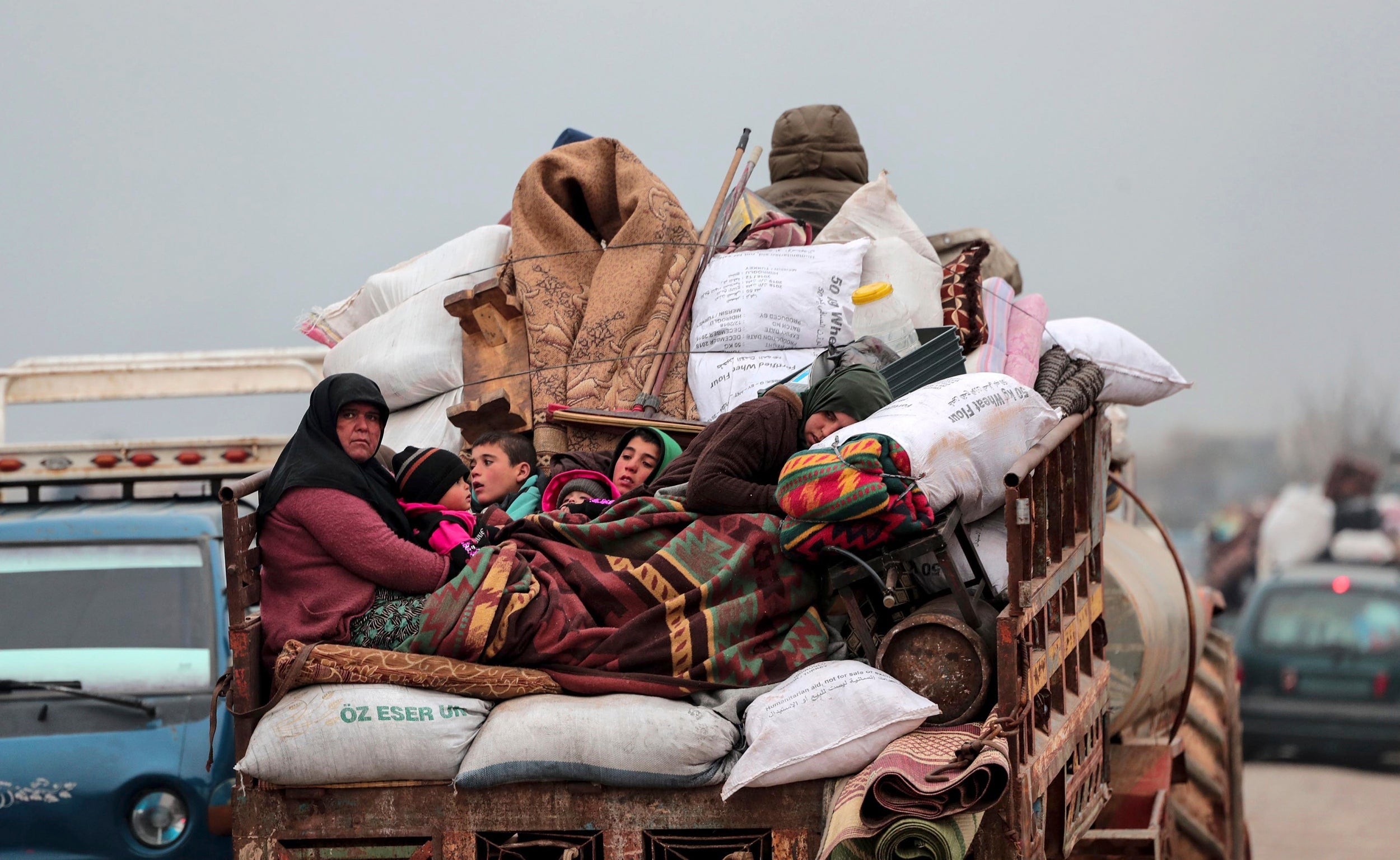Why we have to keep telling the stories of those bearing the brunt of Syria’s civil war
Approaching a decade of conflict, it is difficult to report on anything but the ceaseless violence – though we must carry on, writes Olivia Alabaster


Nearly nine years into the Syrian war, and a new horrific phase of the conflict has opened up – three million civilians are trapped in Idlib, with nowhere to go to escape an unforgiving onslaught from Assad and Russian forces.
In this devastating civil war, each year seems to bring new cruelty, and yet it has become increasingly difficult to tell the story in a way that will capture the attention of readers – and alert the world to the situation on the ground.
In the early days of the uprising, when revolutions spread from Tunisia across the Middle East, victories, and defeats, were small.
Working then as a reporter in Lebanon, we would report tens of civilians fleeing the border from Syria; dozens shot in protests. And, of course, those initial democratic aspirations of the first protesters.
By the next summer, the conflict was increasingly violent. The regime was soon dropping barrel bombs – even if Assad was denying they were used – and locking up thousands of political prisoners. The number of refugees shot up, and the migrant crisis soon reached European shores with the heartbreaking images of Alan Kurdi in 2015.
Aside from the shocking violence – the beheadings and the mass murder, kidnappings and rape – there were often stories we could tell of human endurance, of humour and of love.
There was the couple in Homs who wed under a canopy of broken buildings – their hope being a symbol of expectation for the future. There was the infamous cat man of Aleppo, who under shelling and airstrikes, amid so much human destruction, persevered to find and rescue animals – as he does to this day. In besieged Yarmouk, now long since retaken by the Assad regime, there was the young Palestinian musician who played a broken piano in the open air, a small glimmer of beauty in a seemingly hopeless situation.
Now it feels as if these stories have disappeared. There is not much left to report on but ceaseless violence. Those civilians trapped in Idilb are desperate, and they feel forgotten. As one father, Fayyad Akoush, himself already displaced from elsewhere in Syria, told our Middle East correspondent Richard Hall last week: “No one is helping us. The whole world watches us while we die. We are just waiting for the shells to fall on us.”
Although those stories of beauty and of human endurance may now be few and far between, and though it may now appear to much of the world that the war is over, and that Assad has won, that is not how it feels to those on the ground in Syria. We have to keep telling their stories.
Yours,
Olivia Alabaster
International editor
Join our commenting forum
Join thought-provoking conversations, follow other Independent readers and see their replies
Comments